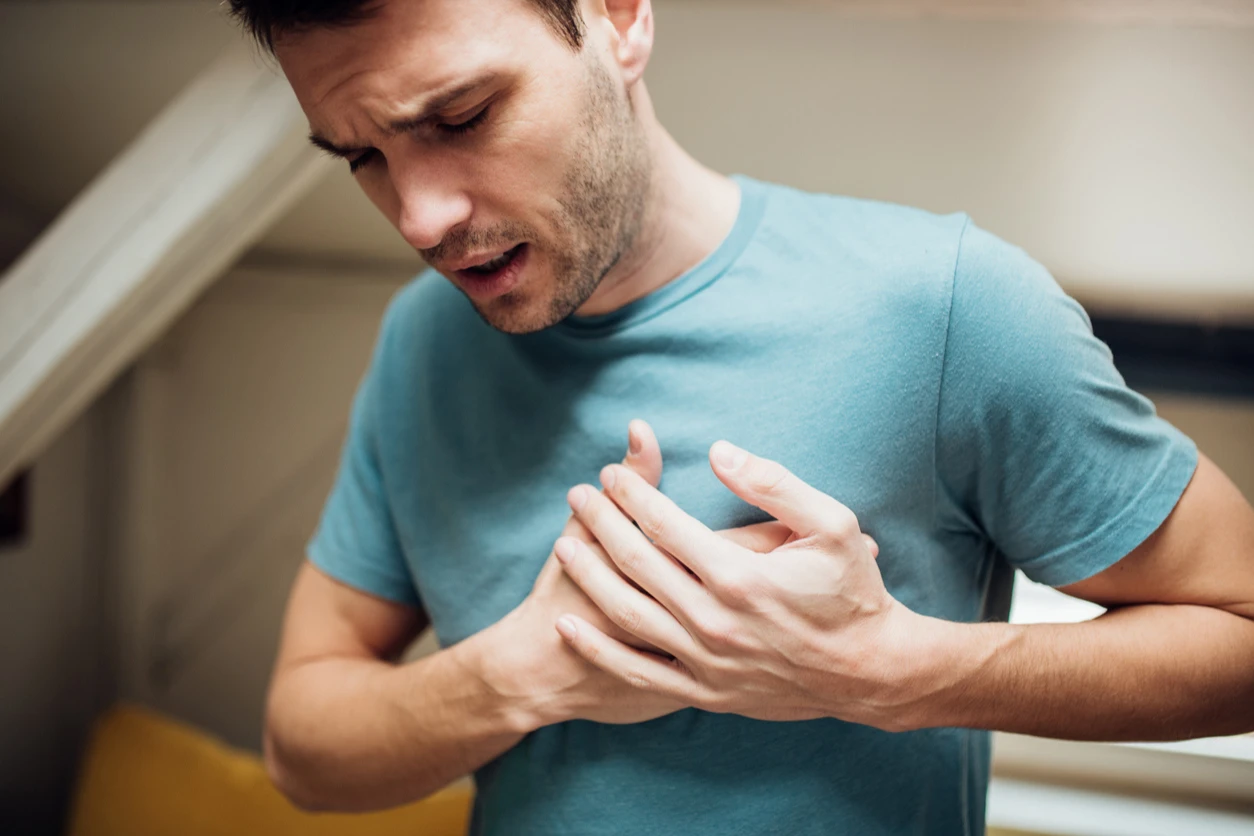
Across the United Kingdom, 82% of adults drink alcohol each year.
Although consuming alcohol does not mean that an individual will automatically develop an alcohol use disorder, it is believed that 24% of men and 11% of women across the nation frequently consume over the recommended amount of alcohol units each week.
Sadly, regularly consuming more than 14 units of alcohol a week increases the risk of alcohol use disorders.
Research published by the British Psychological Society and The Royal College of Psychiatrists has determined that 24% of adults in England are currently at risk of developing alcohol use disorders due to consuming alcohol in a way that is extremely dangerous.
Although alcohol use disorders continue to impair the lives of millions, they are often overlooked due to a lack of understanding and available information.
Considering this, at Action Rehab, we have answered the question “what is alcohol use disorder?” here and shared how you can determine if an alcohol use disorder is impairing your or your loved one’s life.
What Is Alcohol Use Disorder?
As defined by the National Institute on Alcohol Abuse and Alcoholism, alcohol use disorder is a brain disorder that sees an individual unable to stop or control alcohol use.
Contributing to this, the NHS states that alcohol use disorders, which are also referred to as alcohol addictions, alcohol misuse and alcoholism, see many consume alcohol in a way that is harmful to their health. Regrettably, this causes a large proportion of individuals to become dependent on alcohol.
Sadly, as reported by the World Health Organisation, alcohol use disorders increase the risk of premature mortality and disability.
How To Determine If An Alcohol Use Disorder Is Impairing Your Life
Having answered the question “what is alcohol use disorder?” you may now wonder how you can determine whether an alcohol use disorder is impairing your life.
Although we highly advise contacting either ourselves or another health provider to distinguish whether an alcohol use disorder is impairing your life, there are several questions you can ask yourself to determine whether you have developed an alcohol use disorder. We have outlined just a few of the questions below.
- Do I consume alcohol every day?
- Do I consume more than the recommended 14 units of alcohol each week?
- Do I consume alcohol at various times throughout the day?
- Do I rely on alcohol to help alleviate mental health disorders?
- Do I consume alcohol to enhance my mood?
- Do I experience cravings for alcohol?
- Have I ever experienced withdrawal symptoms such as nausea, headaches and insomnia when I cannot consume alcohol?
- Has my physical health changed in the last few weeks, months or years?
- Has my mental health taken a turn for the worst?
- Has a loved one, friend, colleague or employer approached me to express their concerns?
If you have said yes to any of the above questions, an alcohol use disorder may be present in your life.
However, if you remain unsure of whether you need to secure treatment or professional support, we recommend reviewing the signs and symptoms associated with alcohol use disorders that we have shared below.
- Mood swings
- Inability to concentrate
- Insomnia
- Paranoia
- Anxiety
- Depression
- Persistent headaches
- Nausea
- Digestive system problems
- Changes in your appearance
- Weight loss or weight gain
- Changes in your appetite, such as eating more or less
- Lack of interest in things you once enjoyed
- Difficulty retaining information and remembering what someone has said
- Reduced performance at work or school, college or university
If you experience any of the signs and symptoms noted above and have answered yes to the questions previously shared, an alcohol use disorder may well be controlling your life. As a result, you must secure professional treatment as soon as possible.
How To Distinguish If A Loved One Is Struggling With Alcohol Use Disorder
To distinguish if a loved one is struggling with alcohol use disorder, we have shared many physical and behavioural signs and symptoms that will surface if an alcohol use disorder is present below.
- Your loved one’s appearance will change. For example, they may experience weight loss or weight gain. Their complexion may also change, and you will notice that their eyes appear to be somewhat bloodshot.
- Your loved one will take less pride in their physical appearance and personal hygiene.
- Your loved one will experience frequent mood swings and heightened irritability.
- Your loved one may complain that they have persistent headaches and feel sick.
- Your loved one will isolate themselves from others, avoid certain people and places and will lose interest in things they once enjoyed.
- If your loved one is struggling with an alcohol use disorder, they may become highly secretive.
Treatment For Alcohol Use Disorders
If you are personally struggling with an alcohol use disorder or are worried that a loved one is, it may be beneficial to know that there is a wealth of treatment available for alcohol use disorders.
Treatment for alcohol use disorders typically requires those struggling to enter a rehabilitation facility and complete an addiction treatment programme. These programmes combine treatments such as detoxification and rehabilitation to ensure that the physical and psychological ramifications of alcohol use disorders can be overcome.
Aftercare support is also offered to ensure that a long-term recovery is maintained.
Contact Us For Support and Guidance Today
If you find yourself asking the question “what is alcohol use disorder?” and have become increasingly worried that an alcohol use disorder is impairing either your own life or a loved one’s life, we highly recommend contacting us for support and guidance.
In doing so, we can help you determine whether treatment is required for an alcohol use disorder. If we believe that treatment is needed, we can assist you in locating a suitable rehab that can provide either yourself or your loved one with the treatment required to overcome an alcohol use disorder.
Sources
https://www.nice.org.uk/guidance/cg115/evidence/full-guideline-136423405
https://alcoholchange.org.uk/alcohol-facts/fact-sheets/alcohol-statistics#:~:text=In%20England%20in%202018%2C%2082,%2C%2057%25%20of%20the%20population.
https://www.drinkaware.co.uk/research/research-and-evaluation-reports/alcohol-consumption-uk#:~:text=How%20much%20do%20people%20drink%3F&text=In%202017%20in%20England%2C%2024,no%20more%20than%2050%20units.&text=11%25%20of%20women%20said%20that,no%20more%20than%2035%20units.
https://www.who.int/health-topics/alcohol#tab=tab_1
https://www.niaaa.nih.gov/publications/brochures-and-fact-sheets/understanding-alcohol-use-disorder
https://www.nhs.uk/conditions/alcohol-misuse/
Posted on Friday, June 4th, 2021 at 10:48 am in Alcoholism.






 Call Us
Call Us Contact Us
Contact Us